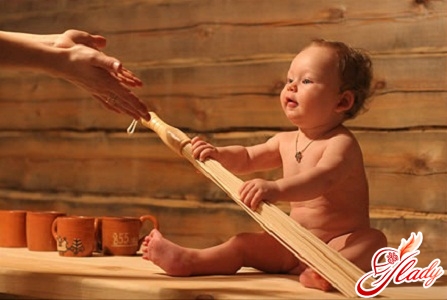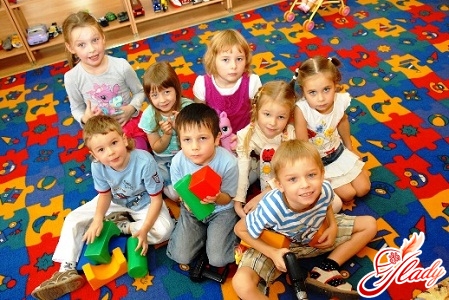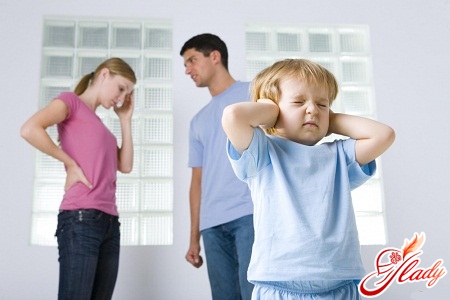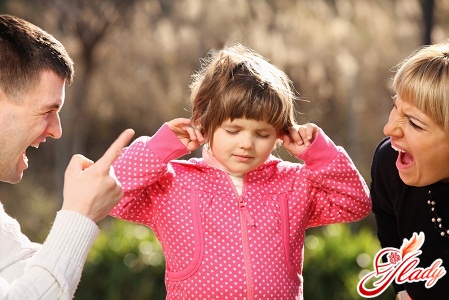 Most likely, not a single nuance in the educationalThe child's process does not cause as many questions as the punishment of the child. Someone thinks that it is unacceptable to punish a child, and for someone else, the punishment of children with a belt is something taken for granted and not worthy of special attention, and even more so of concern. So which of them is right? Is it worth it to punish a child, or still refrain from punitive measures? Quite exactly one thing - the punishment of a child is an extremely delicate action, requiring careful consideration and weighing. An ill-considered punishment not only does not give the desired effect, but it can lead to the most unpredictable consequences, up to the complete disobedience of the child and even escape from home. But this is probably not the effect that parents expect. It is not difficult to punish a child, but the consequences of such punishment can be "decoupled" for a very, very long time. That is why, before punishing a child, you should carefully understand the offense, and choose exactly the punishment that will cause the child to truly repent of what was done. And most importantly, never again repeat this behavior. Only in this case the punishment can be considered effective and expedient. In all other cases, punishment is nothing more than a banal manifestation of parental authority and the suppression of the child. Never punish a child without understanding each specific situation. It is unacceptable to punish a child "for bad behavior" - he certainly needs to know what he is getting punishment for - a broken window, rudeness to a neighbor or stolen money. Only in this case, parents can hope that the punishment will reach its goal. In addition, in no case should not punish the child in a temper, while at the peak of irritation and anger. As a rule, it is in this condition that parents can grab the belt and pull the belt a couple of times. However, anger and anger are far from the best helpers of parents. Firstly, in the heat of the day, you can hardly objectively assess what is happening and understand the child's misdemeanor in detail, which is simply necessary in order to understand the degree of guilt of the child. And, secondly, when you raise your hand to a child, you can provide yourself with a lasting sense of guilt and regret, which is not so easy to get rid of. In addition to the fact that you yourself will feel extremely uncomfortable, the child will also very quickly notice your hesitation. And, as a rule, almost all children inevitably begin to use the doubt of the parents to incline the scales, on which various privileges and advantages lie, in their direction. And in order for punishment to be truly effective, parents must be absolutely sure of what they are doing themselves. Otherwise, the child will feel the doubt of his parents, and the punishment for him will be only an excuse for offending his parents, but not a reason to think about his behavior. Remember one more immutable truth - in no case it is unacceptable to punish the child "just in case", if you have even the slightest doubt about the child's guilt. Remember that even in adulthood, the slightest doubt is interpreted in favor of the suspect, and what can we say about the children? Much less harm will be if you do not punish a really guilty child, than the punishment will bear the innocent. In this case, the trauma to the psyche may be too strong. In any case, do not check this on your child. In the same case, if the child fully realized and admitted his guilt, and even more so if he himself came to the parents and confessed, the punishment should also be much softer. And it may very well be that you will completely refuse punishment, which may also be the right decision - the child already understands his mistakes and will try never to repeat them again. However, in this situation, be sure to consider the factor of the presence of a so-called relapse. To forgive and leave without punishment one or another misconduct of a child is possible only if the crumb committed it for the first time. If you explained to the child the inadmissibility of such an act, and he repeats it again, the punishment must be inevitable.
Most likely, not a single nuance in the educationalThe child's process does not cause as many questions as the punishment of the child. Someone thinks that it is unacceptable to punish a child, and for someone else, the punishment of children with a belt is something taken for granted and not worthy of special attention, and even more so of concern. So which of them is right? Is it worth it to punish a child, or still refrain from punitive measures? Quite exactly one thing - the punishment of a child is an extremely delicate action, requiring careful consideration and weighing. An ill-considered punishment not only does not give the desired effect, but it can lead to the most unpredictable consequences, up to the complete disobedience of the child and even escape from home. But this is probably not the effect that parents expect. It is not difficult to punish a child, but the consequences of such punishment can be "decoupled" for a very, very long time. That is why, before punishing a child, you should carefully understand the offense, and choose exactly the punishment that will cause the child to truly repent of what was done. And most importantly, never again repeat this behavior. Only in this case the punishment can be considered effective and expedient. In all other cases, punishment is nothing more than a banal manifestation of parental authority and the suppression of the child. Never punish a child without understanding each specific situation. It is unacceptable to punish a child "for bad behavior" - he certainly needs to know what he is getting punishment for - a broken window, rudeness to a neighbor or stolen money. Only in this case, parents can hope that the punishment will reach its goal. In addition, in no case should not punish the child in a temper, while at the peak of irritation and anger. As a rule, it is in this condition that parents can grab the belt and pull the belt a couple of times. However, anger and anger are far from the best helpers of parents. Firstly, in the heat of the day, you can hardly objectively assess what is happening and understand the child's misdemeanor in detail, which is simply necessary in order to understand the degree of guilt of the child. And, secondly, when you raise your hand to a child, you can provide yourself with a lasting sense of guilt and regret, which is not so easy to get rid of. In addition to the fact that you yourself will feel extremely uncomfortable, the child will also very quickly notice your hesitation. And, as a rule, almost all children inevitably begin to use the doubt of the parents to incline the scales, on which various privileges and advantages lie, in their direction. And in order for punishment to be truly effective, parents must be absolutely sure of what they are doing themselves. Otherwise, the child will feel the doubt of his parents, and the punishment for him will be only an excuse for offending his parents, but not a reason to think about his behavior. Remember one more immutable truth - in no case it is unacceptable to punish the child "just in case", if you have even the slightest doubt about the child's guilt. Remember that even in adulthood, the slightest doubt is interpreted in favor of the suspect, and what can we say about the children? Much less harm will be if you do not punish a really guilty child, than the punishment will bear the innocent. In this case, the trauma to the psyche may be too strong. In any case, do not check this on your child. In the same case, if the child fully realized and admitted his guilt, and even more so if he himself came to the parents and confessed, the punishment should also be much softer. And it may very well be that you will completely refuse punishment, which may also be the right decision - the child already understands his mistakes and will try never to repeat them again. However, in this situation, be sure to consider the factor of the presence of a so-called relapse. To forgive and leave without punishment one or another misconduct of a child is possible only if the crumb committed it for the first time. If you explained to the child the inadmissibility of such an act, and he repeats it again, the punishment must be inevitable.
Correction for age
Of course, that making a decision on the needand the form of punishment, parents must take into account the characteristics of the age category in which their child is. After all, it goes without saying that the punishment of a two-year-old kid and adolescent can not be the same. Parents should be aware of the following features of the child's psyche:
In addition to age-related features, parents shouldremember a few more small but very important nuances. So, for example, it is very important to take into account the physical condition of the child - it is quite possible that the child feels bad, or wants to eat or sleep. Yes, and the emotional state is also very important - if the child is angry or offended, it is much more difficult for him to control himself and control his emotions, as well as for an adult person. So maybe it is much more reasonable in this situation to calm the child, help him come to himself and cope with his emotions before punishing him? In addition, do not forget that absolutely any person - both an adult and a child - is in dire need of his personal space. Be sure to allocate such a place for the child, where he can feel completely free - naughty, rave, get dirty, make noise. Such a measure is simply necessary so that the child can give vent to his emotions - both positive and negative. 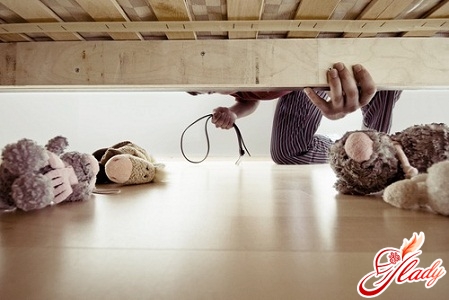
Why not punish the child?
There are several things for which to punishchild is strictly prohibited. In such cases, punishment only worsens the situation, and in addition, the relationship with the child can significantly deteriorate. So, what are these situations?
- Cognitive activity
Little children are extremely active and veryinquisitive. They tend to climb everywhere, try everything on the tooth, touch it with your hand. And if in the process of this knowledge of the world around the child accidentally spoiled any thing or a toy, you should not scold him - thus you will for a long time beat him from the desire to know the world around him. By the way, parents often punish a child only for the fact that he touches his sexual organs. Parents are very much frightened, believing that a child can grow up with those or other sexual disorders. However, this is not the case at all - the child studies his genitals just as he studies cheeks, nose, and lobic. And by punishing a child, you only sharpen his attention to it, suggesting that the sex organs are something dirty and shameful.
- Age-related physiological characteristics of the child
It is not necessary to punish the child and for the fact that hecan not concentrate attention on anything, can not sleep, or refuses to eat - as a rule, in such cases, children need help, but not in reprimand, much less in punishment.
- Misconduct caused by lack of experience
It is not necessary to punish the child also in that case,if he has committed any wrongdoing not out of malice or harm, but because he does not know how to act in this or that situation. In this case it is much more reasonable to explain to the child why it is not necessary to do so, but show how to behave. Most likely, the child will not repeat his mistakes in the future. But the punishment can sincerely offend the crumb, who is completely unaware of what the mother or father is angry with him.
- Sibling rivalry
Children's jealousy, unfortunately, isvery common. Most often, children are jealous of mother either to a new spouse, or to a younger brother or sister. Often, such jealousy can bring to the white heat of even the most patient parents. However, in this situation, punishment is the worst thing parents can do. Punishment will not achieve anything but an even more complicated situation. A child's punishment and your anger will be taken as superfluous proof of the fact that now you love him much less than before.
- Awkwardness or negligence of the child
Also, children's psychologists do not recommendparents punish the child for carelessness or oversight - spilled on a cocoa sweater, a broken plate or torn sandals. After all, the child was absolutely not going to do this - it all happened absolutely randomly. Agree that even an adult often makes similar oversights. And you do not punish yourself for being careless?
Types of punishment
So, we came to the main question: encouragement and punishment of children in the family. About encouragement, we'll talk next time, but the punishment will be considered below. After all, as already mentioned, the punishment must be strict, but always just. And it should never undermine the dignity of the child, no matter how small he is. Slap on the soft spot often seems to parents the most simple and effective punishment. However, before raising your hand to the child, consider what consequences may have a physical impact on the fragile psyche of the child. In order to better understand what is happening with the child's psyche during punishment, try to put yourself in the child's place. Imagine that someone who is much stronger than you raised his hand on you. What do you think, what emotions would you feel? It is unlikely that there would be love and respect among them. Also your child - he experiences exactly the same resentment, anger, disappointment in his parents. Moreover, to the great regret, very often the child grows with the thought that he will very soon become an adult, and will necessarily take revenge on the one who offends him. But these psychological attitudes can lead to serious deformation of the psyche. Think about yourself - do you want to raise a child whose only goal in life will be revenge for you, parents? It goes without saying that far from all such children, who were physically punished as children, grow up maniacs and murderers. As the child grows, acute resentment and anger at the parents gradually go to the background. However, completely all these negative emotions do not go away - they simply go to the distant plan. And as a result, in the subconscious of the child, there is almost always a need for manifestation of the aggression accumulated during the years of childhood. And as a result, the child will grow angry and angry. Very often, many parents object: I was beaten as a child by my parents - and nothing terrible, I grew up a normal and adequate person. On the one hand, it is so, but on the other - in no case should we lose sight of the fact that every child is purely individual. And the plasticity and flexibility of the psyche in all children is also different - one child will suffer spanking without much damage to the psyche, and in 15 minutes will not even remember it. And another kid, even a slight slap on the pope will remember for life. And all my life I will hide an insult to my parents. And, in addition, because of fear of punishment, the child can begin to lie to parents, to hide from them the whole truth. And sooner or later, but such traits as lying, anger, cowardice and aggression can become an integral part of your child's character. And after all, as you know, the main character traits are laid exactly in childhood. In addition, do not forget also that raising a child through physical punishment, you actually sign your own impotence. After all, as a rule, a person resorts to physical methods of influence only in the event that he has no other arguments left. And the child will very quickly feel it. And always remember that in almost all cases, adults raise their hands to the child in a fit of anger, or extreme irritation, which in essence is one and the same. Do not believe me? Watch yourself during the punishment of the child. So is it worth it to rip off your negative emotions on the child? And if parents beat their child in a completely calm state, in this case they themselves need immediate professional help from psychologists. A child - assistance and protection of social protection. And parents in such cases very much risk to remain without children. Therefore, before you apply the physical punishment of children, the pros and cons must be weighed very carefully! We advise you to read:




